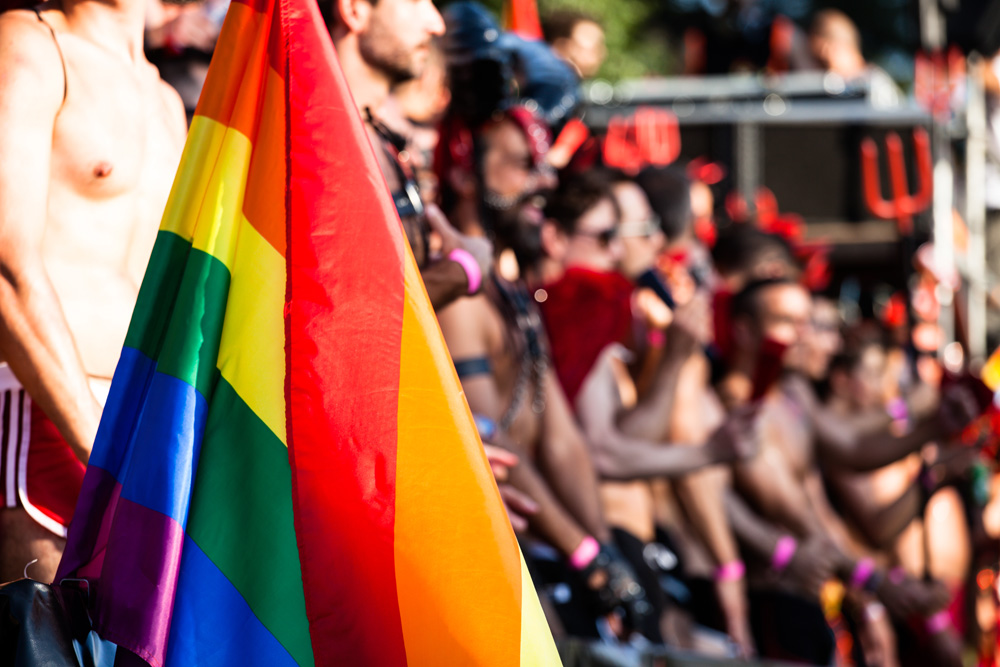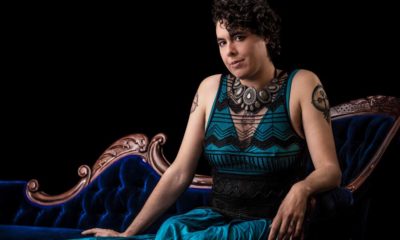LGBTQ
The invisible LGBT people in ASEAN: “This is our lives we are talking about!”
A transgender girl baring her breasts against the military coup in Thailand, marked with pro-democratic slogans and spreading her legs, Aum Neko has once again caused a social media fury for her civil disobedience methods. Along massive positive support, the transgender student was subject to attacks on her sexual orientation and identity. “Damn ladyboy” was just one of the softer comments on social networks. Around the same time, in neighboring Malaysia, 16 transgender women were sentenced to seven days in prison and a fine for “cross-dressing”. Human Rights Watch called it a “violation of their rights to freedom of expression and privacy”. This past June’s Pink Dot, LGBT rights rally, in Singapore saw a white opposition from Muslim and Christian religious groups, calling on people to wear white in protest. On a more positive note—the first public same sex wedding was held in Myanmar this spring and surprisingly, Vietnam’s communist government doesn’t seem as hostile to LGBT people than to other civil and human rights movement.
“It’s a mixed bag (in ASEAN)”, says Ng Yi-Sheng from the Singaporean Committee of ASEAN SOGIE Caucus, campaigning to include LGBT (IQ-intersex,questioning) rights in ASEAN’s human rights documents. “On one hand, we have countries where civil unions will probably soon be legal, such as Thailand. On the other hand, we have countries where (same sex relations) are punishable with death by stoning, such as Brunei. And then we have countries in between, like Singapore, where there is a moderate level of acceptance but still a law against gay male sex.” There is one thing though, that all ASEAN members have in common, and it illustrates the long way LGBT groups have in Southeast Asia to achieve basic human rights, regardless of sexual orientation and identity. “We don’t have national anti-discrimination or anti-hate crime legislation with only some city-level ones in the Philippines. This is what worries most of us, much more than marriage and adoption rights,”Ng Yi-Sheng points out. So how visible are LGBT people in Southeast Asia, and are ASEAN and its member countries members rather, turning a blind eye to their existence in the first place? Here is our evaluation based on NGO reports, ASEAN SOGIE Caucus and International Gay and Lesbian Human Rights Commission (IGLHRC) analysis.
1. The safe havens: Thailand and Philippines
Thailand has been often called the number one ASEAN country for sexual minorities’ rights and acceptance, decriminalizing homosexuality as early as 1956. LGBT people from neighboring Laos, Cambodia or Burma would agree, often migrating to the “Land of Smiles” for a more positive life, free of fear and discrimination. Relatively tolerant to gays and lesbians, Thais are close to becoming the first in ASEAN to abolish ban on same-sex marriages. A sex change is possible here for a few thousand dollars and “kathoeys”— also known as transgender women—have become a popular part of entertainment industry as well as the vibrant sex trade. Nevertheless, Thailand remains more than stereotyped against transgender people. They are generally associated precisely with these ‘entertaining’ professions, extending only to beauty and fashion. Other sectors remain conservatively closed to “kathoeys”. Moreover, a study by UNESCO and Mahidol University from November 2013 found that a third of 2,000 LGBT students had been physically harassed and only a minority had shared their bullying experience with anyone, often resulting in depression and suicide attempts (7%). Analysts also point out that Thai government and authorities often play down hate crime against LGBT people as ‘love affair crime’. While in practice it means little, Thailand is the only ASEAN country supporting the UN declaration oF LGBT rights.
This two-faceness is present in the Philippines as well. Somewhat advertised around the world as one of the most ‘gay friendly’ countries, this is apparently a ‘sad misinformation’, says Professor Neil Garcia in IGLHRC’s research paper on the Philippines. The study concludes that hate crime, discrimination and violence against LGBT people are widely reported, but the lower end of justice system is cutting sexual minorities short of effective protection, especially because of lack of understanding by local authorities. Consensual homosexual relations, homosexuality and transgenderism are not illegal in the Philippines, but LGBTpeople are rather invisible to the legal system. Nationwide surveys have shown that only less than 14 percent of Filipinos approve of homosexual acts, but more than half of the respondents respect the right of person to be homosexual. Officially a secular state, mostly Roman-Catholic, Philippines therefore adopts the Vatican’s stance on LGBT people, but they are a bit more tolerant than that. “A strong activist scene is present there and general acceptance is more widespread,” concludes Ng Yi-Sheng from Singaporean Committee of ASEAN SOGIE Caucus.
2. Rising star and the hybrid: Vietnam and Singapore
Vietnam has jumped out of its label of the ‘least developed’ countries of ASEAN recently and rather quickly with enormous economic growth. While this is less true for human development or democratization, the LGBT movement has been one of the most effective amongst the increasing call for civil rights and internet freedom,. The communist government had been considering to abolish the ban on same-sex marriages since 2012, and has since then decriminalized same-sex weddings and allowed same-sex couples to live together. However, while the communist government is somewhat relaxed towards sexual minorities, the society remains conservative, says Ng Yi-Sheng from the Singaporean Committee of ASEAN SOGIE Caucus. “The route to civil unions is suggested, but general awareness remains low.” The biggest opposition against LGBT rights comes from Vietnamese Women’s Union, which sees same-sex marriage as a threat to traditional family values. And the challenge goes on, as homosexuality is still a taboo topic in the largely Confucian Vietnam.
The most developed country of ASEAN, Singapore, has been moving in-between the traditional tight legal grasp on society and aspirations of new civil freedoms. On 28 June 2014, Singapore held the sixth year of “Freedom to Love” LGBT rights rally. Last year’s ‘Pink Dot’, in honor of ‘little red dot’ a.k.a. Singapore, has been the largest gathering of civil society ever with more than 21, 000 people attending. The general tolerance against LGBT people is on the rise especially among young generation of Singaporeans. “The acceptance is growing, but laws are bad,” says Ng Yi-Sheng. As a former British colony, Singapore inherited the ‘sodomy law’, outlawing sex between men. Two gay men challenged the penal code as unconstitutional in 2007, but after years of heated debate, it was upheld in the High Court last year. While the calls to abolish the sodomy law are increasingly more frequent, so is the push against them, coming mainly from growing evangelical congregations: a big lobby group that has a direct effect on opinion-making in Singapore. The ‘Pink Dot’ celebration this week is expecting a protest by white-wearing conservative religious groups—Christian and Muslim alike.
Part 2 can be read here http://simplysxy.com/articles/2014/07/05/the-invisible-lgbt-people-in-asean-part-2/
Part 3 can be read here http://simplysxy.com/articles/2014/07/06/the-invisible-lgbt-people-in-asean-part-3/
Image courtesy of Shutterstock
Join SimplySxy’s forum discussions now on Society
Do not miss another article on SimplySxy! Follow us on Facebook and Twitter for our latest updates!
Alexandra Demetrianova is a freelance journalist and former Southeast Asia/Asia correspondent for Slovak Radio – the public broadcaster in Slovakia. For four years she has been covering Thailand and the wider region for radio and major Slovak press titles, with issues ranging from politics and economy to society, culture, religion, environment and current issues in Southeast Asia. As a sole Slovak correspondent in Asia, she has also focused on commenting and analysis of China, Japan, Koreas and India.
Alexandra studied journalism and mass media at Comenius University and later Pan-European University in Bratislava, Slovakia, where she achieved Bachelor of Arts (2010). Starting journalist work as early as her studies (2006), she has worked for major press as well as audiovisual media in Slovak market. She went on to study Master in International Relations at Thammasat University in Bangkok, where she extended her work to academic research and event projects. She has co-organized Thammasat Human Rights Film Festival (2012) and later Common Lives Film Festival, a side event of ICIRD held at Chulalongkorn University (2013). She is based in Bangkok.






























